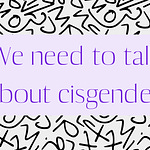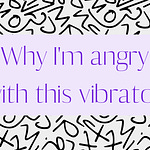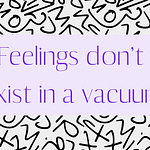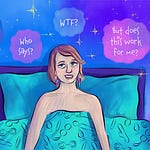Last week I tweeted about my latest newsletter and someone replied asking “Why are you so obsessed with sex?”
Share this post

Why are you so obsessed with sex?
overthinkersguidetosex.substack.com
Why are you so obsessed with sex?
Jul 07, 2020
∙ Paid
The Overthinker's Guide To Sex
The Overthinker's Guide To Sex is a sex and relationships newsletter by freelance journalist Franki Cookney. This is the audio version.
The Overthinker's Guide To Sex is a sex and relationships newsletter by freelance journalist Franki Cookney. This is the audio version.Listen on
Substack App
RSS Feed
Recent Episodes










